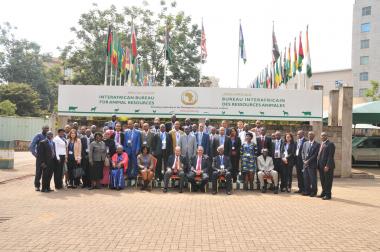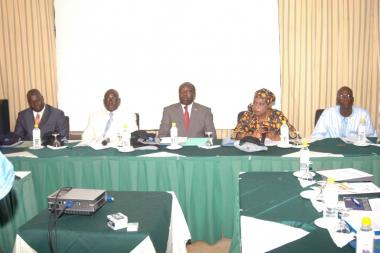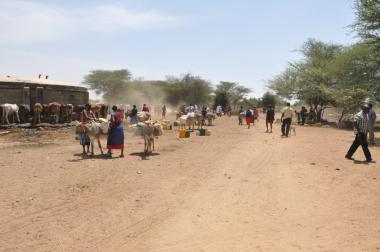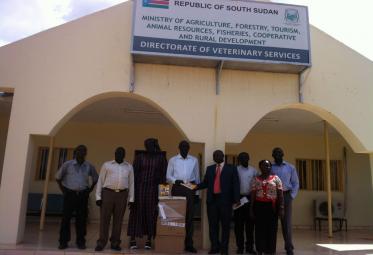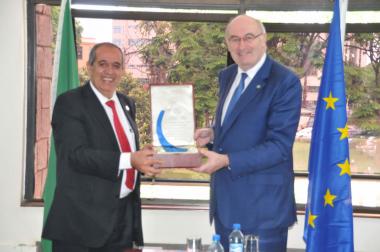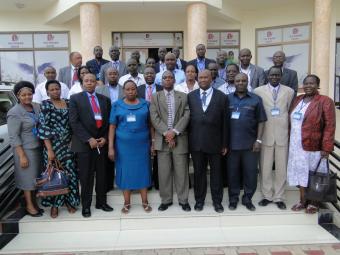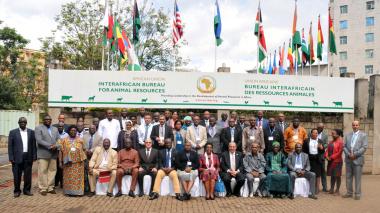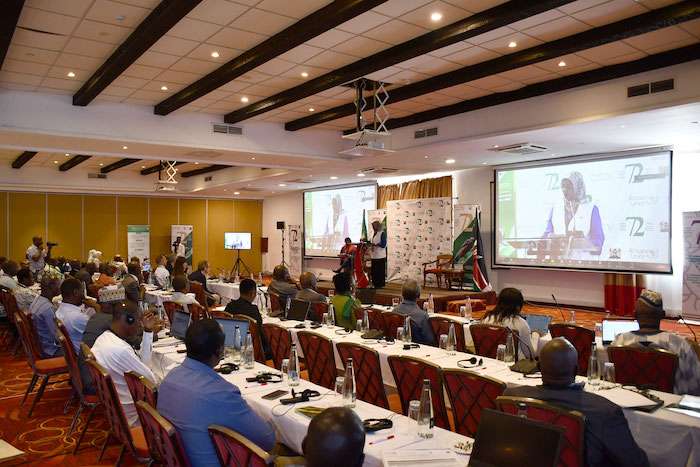
Kenya hosts a global conference on tackling Trypanosomiasis in Africa
Mombasa, Kenya, September 18, 2023
African Trypanosomiasis, commonly known as "sleeping sickness" in human and Nagana in cattle, continues to be a significant threat to both human and livestock health, limiting land use and perpetuating poverty across the continent. This disease, transmitted by the tsetse fly, is responsible for an estimated 1000 cases in people annually , with 55 million people in sub-Saharan Africa at risk.
To combat this relentless threat, the International Scientific Council for Trypanosomiasis Research and Control (ISCTRC), a vital arm of the African Union Commission, is spearheading efforts to combat the disease. Under the auspices of the ISCTRC, the 36th General Conference will be hosted by Kenya in Mombasa from September 18 to 22, 2023.
The 36th ISCTRC Conference theme is Sustainable tsetse and trypanosomiasis control for socio-economic development. This sets the stage for the conference to delve into past achievements, address current challenges and highlight lessons learnt in order to support Tsetse and Trypanosomiasis (T&T) research and control activities ensuring a sustainable future for all.
This significant gathering will bring together approximately 300 participants, including representatives from 38 tsetse-infested AU-Member States, stakeholders in disease control, scientists from African Union Member States, researchers from universities worldwide, and experts from international organizations such as the Food and Agricultural Organization (FAO), World Health Organization (WHO), International Atomic Energy Agency (IAEA), and others.
At the beginning of the 21st century, African Heads of State and Governments acknowledged the significant danger posed by (T&T). During their meeting in Lome in 2000, they highlighted the severity of the T&T issue as a major hindrance to Africa's socio-economic progress. This problem profoundly impacts both human and livestock health, restricts land use, contributes to poverty, and sustains underdevelopment across the continent.
This disease covers over 10 million square kilometers in 38 countries, with 1000 human cases reported in 2022. It puts around 50 million cattle at risk, with 35 million trypanocide doses used and 3 million cattle deaths reported annually. The resulting agricultural production loss is estimated at a staggering US$ 5 billion per year.
The ISCTRC Conference serves as a platform for knowledge exchange on tsetse, human, and animal trypanosomiasis, and aims to review existing control strategies while suggesting appropriate research and control approaches. The conference anticipates several positive outcomes, including disseminating critical information on trypanosomiasis, strengthening networks among researchers and control workers, offering recommendations for research and control activities for the next two years, enhancing capacity for research and control, and elevating the visibility and recognition of Kenya's role in combating this disease.
This vital meeting, held biennially, plays a pivotal role in improving tsetse and trypanosomiasis control, particularly in rural communities where the impact is most severe. The conference will also see recommendations adopted by the Council to guide research and control efforts for the next two years.
Organized under the auspices of the ISCTRC in partnership with the Ministry of Agriculture and Livestock Development of Kenya, this event underscores the collective commitment to eliminate trypanosomiasis and its devastating impact on Africa's people and livestock.
ISCTRC Secretariat
Established in the early 1960s, ISCTRC's primary mission is to foster international cooperation to combat trypanosomiasis. The ISCTRC operates as a hub for information exchange and collaboration, hosted by the African Union Interafrican Bureau for Animal Resources (AU-IBAR) in Nairobi, Kenya.
The Council's membership includes African Union Member States, the African Union Pan African Tsetse and Trypanosomiasis Eradication Campaign (AU-PATTEC), and international organizations such as the Food and Agricultural Organization (FAO), World Health Organization (WHO), and the International Atomic Energy Agency (IAEA).
The ISCTRC has been instrumental in disseminating knowledge and promoting research and control strategies for tsetse and trypanosomiasis through its General Scientific Conferences since 1949. These conferences are a platform for sharing insights, reviewing control strategies, and recommending effective approaches to research and control.
At the end the conference, recommendations will be adopted by the Council to guide research and control of tsetse and trypanosomiasis for the next two years. The outcomes of this conference will contribute significantly to improving the livelihoods of communities across the continent, particularly in regions heavily affected by tsetse and trypanosomiasis.
Note to Editors:
For additional information, please visit AU-IBARs website on ISCTRC
For more information contact Prof. James Wabacha - james.wabacha@au-ibar.org
For media inquiries, please contact: Fiona Imbali- fiona.limbali@au-ibar.org
Sponsors




